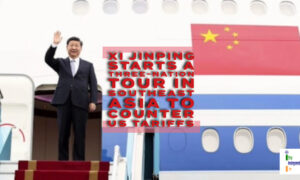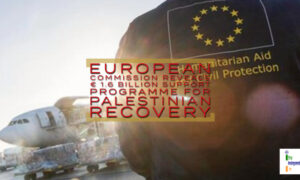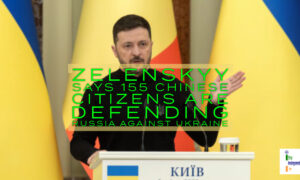
Ursula and Jinping discussed strategic and foreign policy issues during 24th E.U.-China Summit
The President of the European Commission – Ursula von der Leyen, met the President of China – Xi Jinping, during the 24th European Union (E.U.) – China Summit in Beijing, where they discussed a host of issues, including strategic and foreign policy issues, human rights, trade and economy, climate and environment and digital way forward.
The President of the European Council – Charles Michel and China’s Premier – Li Qiang, also graced the Summit. The Summit was an opportunity for the E.U. to engage with China following a period of intensified bilateral contacts and dialogues. The E.U. highlighted the need for concrete progress following these discussions.
Taking it to X (formerly Twitter), Ursula tweeted,
Good and candid exchange with President Xi on the main challenges in a world with increasing geopolitical frictions. Managing our relations is a priority.
— Ursula von der Leyen (@vonderleyen) December 7, 2023
We agreed that we have a joint interest in balanced trade relations.
We also agreed to increase people2people exchanges.
Ursula and Michel also had an open and in-depth meeting with Li Qiang, where they took a deep dive into the economic and trade relations. They agreed to work on rebalancing the trade relations and resolve irritants. They said it’s a joint responsibility to make our trade relations more sustainable.
The E.U. stressed the importance of a well-functioning, rules-based international order, with the U.N. at its core. The leaders also discussed Russia’s war of aggression against Ukraine. The E.U. said that as a Permanent Member of the United Nations (U.N.) Security Council (UNSC), China has a responsibility to protect the U.N. charter and the sovereignty and territorial integrity of all countries. The E.U. called on China to use its influence on Russia to stop its war of aggression and strongly encouraged China to engage on Ukraine’s Peace Formula.
The E.U. also condemned the brutal attack by Hamas on Israel on October 7, 2023. Both sides agreed on the importance of ensuring the protection of all civilians and improving the dire humanitarian situation in Gaza. The E.U. and China confirmed their commitment to the two-state solution.
The E.U. and China are major economic partners with € 2.3 billion in goods trade per day. However, with an E.U. trade deficit of almost € 400 billion, this relationship is critically and structurally imbalanced. The E.U. raised concerns about underlying distortions and the negative effects of manufacturing overcapacity in China’s economy.
The E.U. wants China to take concrete action to improve market access and the investment environment for E.U. investors and exporters. The E.U. recalled that de-risking but not decoupling aims at strengthening resilience by addressing critical dependencies in specific sectors, in full compliance with the World Trade Organisation (WTO) rules.
They also discussed the importance of a competitive environment for the digital economy, including a level playing field for Artificial Intelligence (AI) that respects human rights and fundamental freedoms.
China and the E.U. vowed to lead global efforts to reduce greenhouse gas emissions, including at the ongoing COP28. The E.U. acknowledged recent progress on the expansion of renewable energy and China’s intention to tackle methane emissions.
Besides, the leaders also discussed debt sustainability, food security, health and pandemic preparedness, biodiversity, water, ocean governance, plastic pollution, and deforestation.
Other major topics included the human rights situation in the Xinjiang region where Uyghur Muslims are subject to extreme torture and the continued erosion of fundamental freedoms in Hong Kong.
The E.U. reaffirmed its consistent One China policy and expressed concerns about increased tensions in the Taiwan Strait. Heightened instability in the East and South China Seas threatens regional and global prosperity and security. It said that disputes must be resolved through peaceful means in accordance with international law, in particular, the United Nations Convention on the Law of the Sea (UNCLOS).







